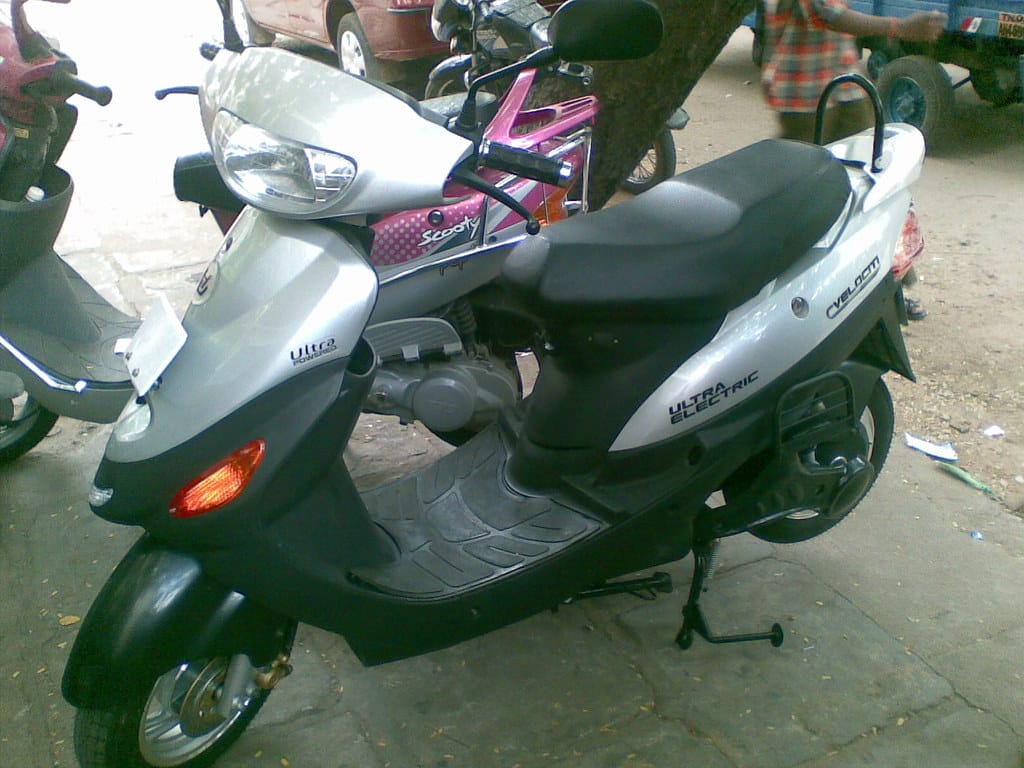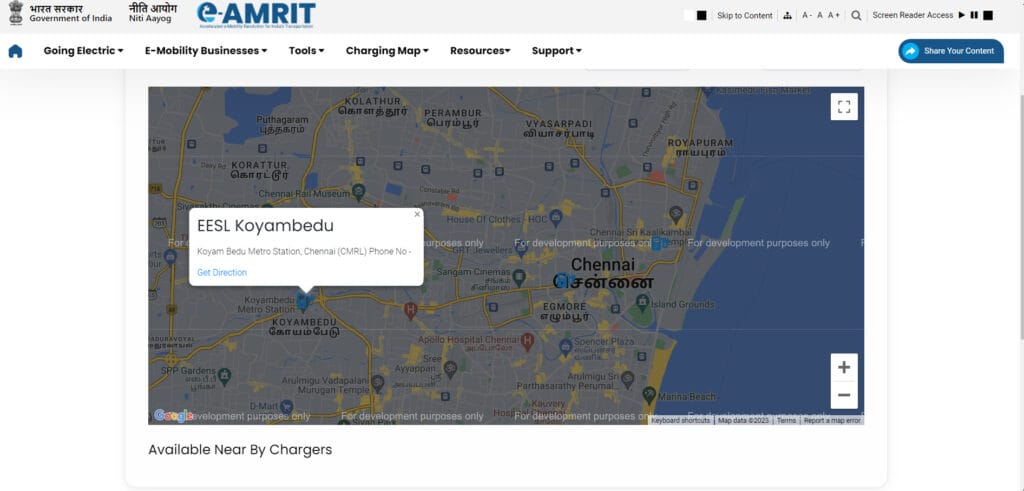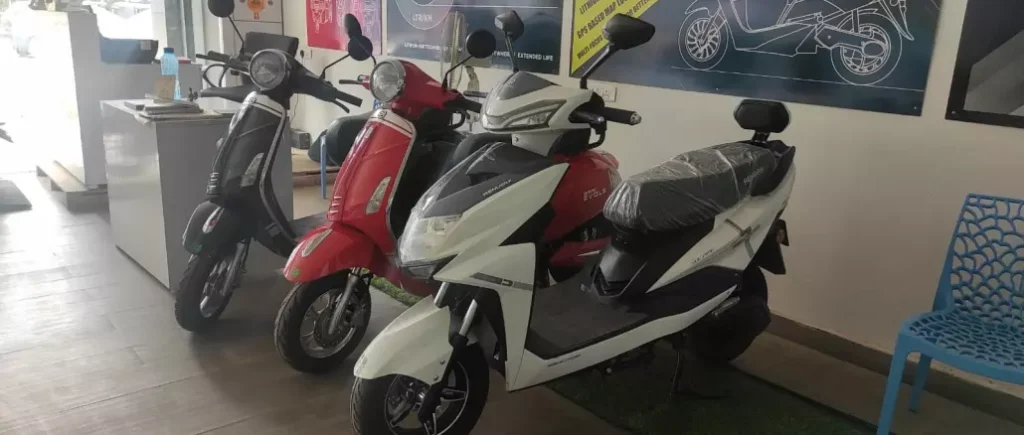With the threat of global warming looming large and countries looking at fewer greenhouse gas emissions, the world is moving towards electric vehicles (EVs). The Indian government, aligning with its commitment to emission reduction and a shift away from fossil fuels, actively advocates for the widespread adoption of EVs. In recent years, EVs have gained significant popularity as a cleaner mode of transportation in Chennai too. But, the shift has been slower and cautious compared to other metros — high cost of EVs, lack of charging points throughout the city and the recent spate of fire accidents involving these vehicles have all had a deterrent effect.
While Chennai residents are now warming up to the benefits of owning a electric-powered two-wheeler or four-wheeler because of the reduced fuel costs, low environmental impact and electric mobility, concerns remain.
Keerthi John, a design student from Taramani, notes that there needs to be more awareness on charging points. “I enjoy the experience of owning an electric scooter and was impressed by the varieties and colours available, even though I was not so focussed on the sustainability aspect. But, I am struggling to find charging stations nearby,” she says.
What do numbers say?
According to Santhosh Loganaathan, urban development professional, among all registered EVs, the majority consists of two-wheelers, followed closely by three-wheelers. Together, they constitute approximately 95% of the total registered EVs in the city.

( ICE – Internal Combustion Engine) Source: Santhosh Loganaathan
Media reports highlight a substantial surge in EV registrations in the state particularly in Chennai, during February and March this year. The data reveals a remarkable increase from the average monthly registrations of 4,500 to 5,000 EVs to a total of 9,300 new EVs hitting the road in March. Almost 60% of these registrations are concentrated in Chennai.
Loganaathan shared that as of August 2023, TVS, Ather and Ola stand out as the prominent sellers in the state’s electric vehicle market. Additionally, he highlighted the current landscape of charging infrastructure in India, primarily provided by private players like Tata Power and several startups, with no publicly funded charging stations known at the moment. The Tamil Nadu Electric Vehicle (EV) Policy takes a proactive stance by offering substantial incentives for EV manufacturers, including subsidies, tax rebates and direct incentives. For consumers, the policy extends benefits in the form of road tax exemption.
Media reports signify a rush in registrations when EV manufacturers introduced customer-centric offers ahead of summer, with some reducing on-road prices by ₹20,000 to ₹30,000. Pradeep of Chennai Eco Motors, dealers in EVs says, “We do keep a track on the market, sometimes there is an unpredicted demand, but often we foresee in accordance with the complexities and cost of other modes of transport and the idea of sustainability being promoted globally, there is always mixed feeling but certainly a fixed demand for EV products.” Additionally, government subsidies and the extension of 100% road tax exemption for all EVs until 2025 by the state transport department that further contributed to the surge. When Chennai’s suburbs, including Tambaram, Poonamallee, Ambattur, and Sholinganallur, witnessed more EV registrations compared to the core city in the beginning of this year, this trend was attributed to the absence of metro rail connectivity in these areas.
While the concerns about fire accidents reported in the previous year did pause the demand for a while, with manufacturers advertising models with in-built fire suppressants to tackle the issues, there is a surge in EV sales. “There is always a safety feature added in the upcoming models, if you see the newly launched EVs, they have been upgraded,” Pradeep adds.
Government policy gives a push
The Tamil Nadu Electric Vehicles Policy, 2023, plays a crucial role in promoting EV adoption. The policy includes a capital subsidy for charging and battery-swapping stations. It recommends electrifying public and institutional fleets in phases, targeting a 30% share of electric buses in the state’s transport undertakings by 2030. The government plans to extend the waiver of road tax, registration charges, and permit fees for electric vehicles until December 31, 2025. Special demand-side incentives will be applicable until March 31, 2026, for vehicles manufactured, sold and registered in Tamil Nadu.
The state has appointed Smart City Commissioners as Nodal Officers to coordinate efforts in creating a seamless transition to electric mobility. The Smart City Mission’s smart mobility programme aims to electrify auto-rickshaws and buses over the next decade in a phased approach. Chennai’s vision for electric mobility extends to taxi fleets and app-based transport aggregators. Interventions are designed to support their transition to electric fleets, aligning with global trends and positioning Chennai as a forward-thinking city.
While the city has made commendable strides in promoting electric vehicle adoption, challenges include concerns about charging infrastructure, initial costs, and the need for increased public awareness. With the city’s journey towards becoming a hub for electric vehicle adoption underway, targeted initiatives, a smart mobility program, and a commitment to developing charging infrastructure navigate its challenges pertaining to full-fledged EV adoption.
Lessons to be learnt
Loganaathan underscores a key challenge in the electric vehicle (EV) landscape, stating, “While the operational costs of EVs are notably lower, the initial purchase cost tends to be higher compared to conventional vehicles. Despite the long-term economic advantages, there is a need for more incentives to bridge this gap. Delhi, in particular, stands out for its commendable efforts in providing incentives to address this aspect.”
He further emphasises the valuable insights gleaned from global cities too regarding policies aimed at expediting the adoption of electric vehicles (EVs). He illustrates this with the example of low-emission zones or cleaner zones, where a city mark specific boundaries and introduces fees for polluting vehicles or outright bans them. The effectiveness of such policies is evident in improved air quality within these designated zones.
Taking London as a case study, Loganaathan highlights the implementation of two variations: the low emission zone and the ultra low-emission zone. In the ultra emission zone, diesel vehicles are barred entry, and the entry fee is substantially high. Notably, the charges may vary for petrol vehicles, with electric vehicles incurring zero charges. This policy lever not only reduces the use of conventional vehicles but actively promotes the adoption of EVs. The positive outcomes extend beyond EV adoption, fostering a shift from private vehicles to public transport and contributing to enhanced air quality within the designated zones. Additionally, these policies serve as a revenue-generating mechanism for the state.
Read more : What you must consider before buying an electric two-wheeler in Chennai

Read more: Why don’t we see electric buses on Chennai roads?


The reality on the ground
According to the March 2023 data released by the Ministry of Road Transport and Highways, Government of India, Delhi has the highest number of operational Public Charging Stations (PCS) with 1845 stations whilst Tamil Nadu with 441 operational PCS.
Apart from the lack of charging stations, some EV users have concerns about the environmental impact of e-waste. Hari from Koyambedu, an avid EV user and environment enthusiast, acknowledges the environmental benefits and cost advantages of EVs but raises concerns about the growing issue of e-waste associated with their batteries. He emphasizes the need for a holistic approach to sustainable battery production and disposal. Hari says, “I wouldn’t say that this is a great sustainable solution but obviously a good alternative. More importantly, as the demand for EVs rises, so does the demand for lithium-ion batteries used for EVs, leading to over-mining of critical metals like cobalt and nickel. I observe the need for a holistic approach to sustainable battery production and disposal.”
To address these environmental concerns, there is a pressing need for advancements in battery recycling technologies. Additionally, creating awareness about the proper disposal of electronic devices, including EV batteries, becomes paramount in fostering a more environmentally conscious approach.
Rajan R from Triplicane says he prioritises practical features such as range, charging time, maintenance, and battery life over tech upgrades. He urges manufacturers to align with the reasons people opt for electric vehicles, stating, “I use an Ather 450 and I hear the upgraded new model is launched in the market. But it’s all these additional features like music that I am not looking forward to; instead, I prefer durable products.”
Reji George residing in Ambattur expresses his concerns about the overwhelming exposure to EV-related information, saying, “I know of people who complain about their new electric bikes that have uncomfortable seat positions, rough edges, and the use of cheap plastics in components. I have been using one for more than two years now, and I am skeptical about upgrading to a newer model.”
Zomato delivery driver Shamsudeen Shahi shares his experience using an electric two-wheeler, highlighting the advantage of not needing frequent fueling. However, he notes a problem with balance. He elaborates on his experience, saying, “My experience with EV has not been very good, especially during the rains, as the tires don’t handle wet surfaces. I bought an EV as I was using my dad’s motorcycle before and spent a lot on fuel every couple of days. But in the rainy season, I use the motorcycle as the EV skids often.”
In view of parking incentives, Loganaathan notes that currently, there are no known special incentives for electric vehicles (EVs) regarding parking fees, except in Chennai Metro Rail Limited (CMRL) stations. However, as the city transitions towards implementing paid parking systems, there exists a significant opportunity to encourage the adoption of EVs. This can be achieved by offering discounted parking rates for EVs, particularly in Multi-Level Car Parks (MLCPs), along with the provision of charging infrastructure. This strategy aims to make parking convenient for EV users, contributing to the overall promotion and uptake of electric vehicles in the urban landscape.